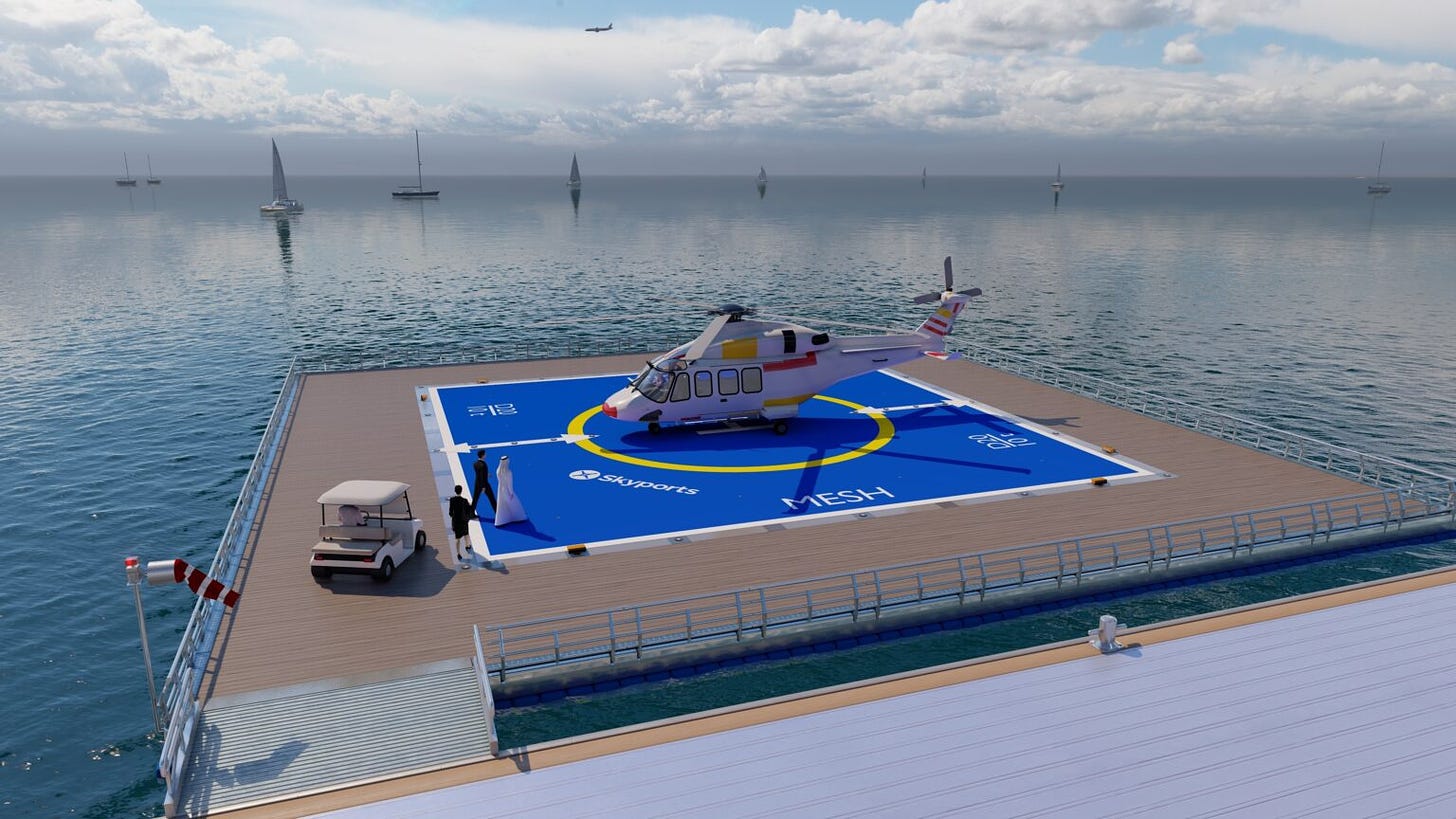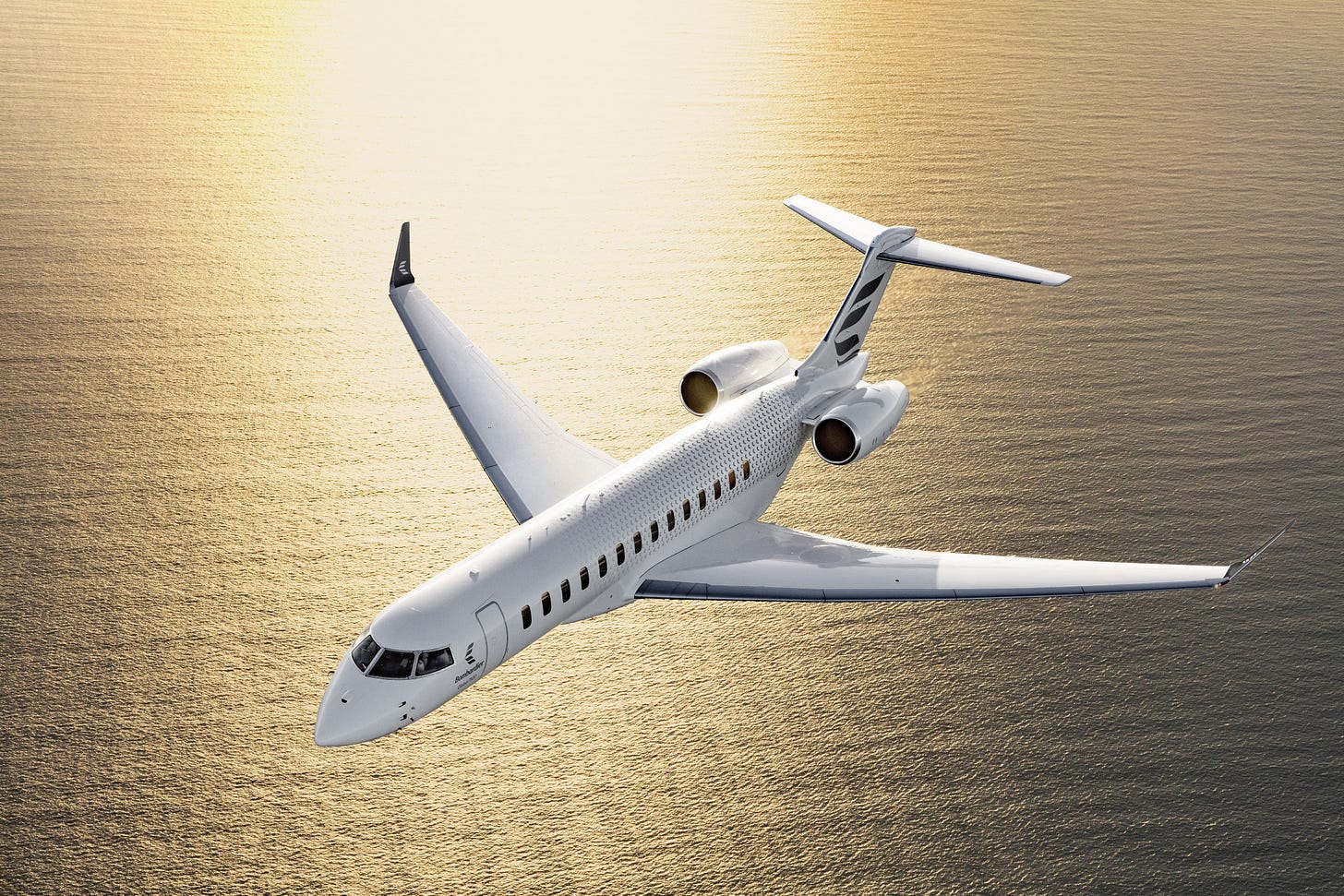New Flaws Found in Boeing 787 Dreamliners, and More

Dear readers,
Welcome to AviationOutlook newsletter, your one-stop source for the most relevant aviation & aerospace news briefs and industry insights.
Here are the important updates for today. Let’s get started.
New Flaws Found in Boeing 787 Dreamliners
Boeing is currently investigating a new quality issue with undelivered 787 Dreamliners, where hundreds of fasteners were incorrectly installed on the fuselages. This issue has raised concerns about the manufacturing process and potential delays in deliveries.
Key Points
- Issue Identification: Boeing discovered that more than 900 fasteners per plane were incorrectly torqued, meaning they were tightened from the wrong side, affecting the fuselage's structural integrity.
- Scope of the Problem: The problem involves the carbon-composite skin being improperly attached to the skeletal supports inside the fuselage, known as longerons.
- Current Status: Boeing is conducting thorough checks on the undelivered 787 Dreamliners to ensure they meet engineering specifications before delivery.
- Safety Assurance: Boeing has stated that there is no immediate concern for flight safety, and the in-service fleet can continue to operate safely.
- Customer and FAA Communication: Boeing is working closely with its customers and the FAA, keeping them updated on the investigation and any necessary rework.
- Impact on Deliveries: Although deliveries have been slower than usual due to previous production slowdowns, they have not been paused as a result of this issue.
- Market Reaction: Boeing's shares fell by 1.7% following the news of the investigation.
Why It Matters
This new quality issue highlights ongoing challenges in Boeing's manufacturing processes. The discovery of incorrectly installed fasteners could lead to further scrutiny from regulatory bodies like the FAA and potential delays in aircraft deliveries.
Boeing's proactive approach to addressing the issue and ensuring compliance with engineering standards is crucial to maintaining customer trust and safety. However, the market's reaction indicates investor concerns about the company's ability to manage and resolve these recurring quality problems.
American Airlines Flight Attendants Picket 30 Airports for Better Pay
American Airlines flight attendants are picketing at 30 airports across the U.S. as they push for new contracts and higher wages. This coordinated action is part of a broader effort by flight attendants to secure better pay and working conditions.
Key Points
- Reason for Protests: Flight attendants are demanding substantial wage increases, better working conditions, and pay during the boarding process. They argue that their contributions, especially during the pandemic, have not been adequately compensated.
- Current Offers: American Airlines' last offer included an 11% upfront pay increase and annual raises of 2%, but the union is seeking a 33% immediate raise followed by annual increases of 6%.
- Federal Law Constraints: Federal law restricts airline unions from conducting legal strikes, so the protests are a form of pressure on management. The unions have conducted strike votes, but actual strikes can be delayed or blocked by federal mediators, the president, and Congress.
- Market Reaction: The ongoing labor disputes and potential for strikes have created uncertainty, impacting investor confidence and potentially affecting airline operations.
What It Means
It underscores the growing frustration among airline workers over stagnant wages and challenging working conditions. The coordinated protests at multiple airports are a strategic move to draw public and media attention to their demands.
While federal law limits their ability to strike, the threat of industrial action remains a powerful tool for the unions.
The outcome of these negotiations could set a precedent for labor relations in the airline industry, influencing future contract talks and potentially leading to improved pay and conditions for flight attendants across the board.
Few More Airline Updates
- Turkish Airlines has announced plans to expand its U.S. presence by increasing its gateways to 20 cities, with recent additions including Denver and Detroit, and upcoming routes to Charlotte, Minneapolis, Orlando, and Philadelphia. This expansion is part of the airline's broader strategy to double in size by 2033 and enhance connectivity to its extensive global network.
- BARK Air, the world's first airline designed specifically for dogs, has announced the expansion of its services to five new destinations, including Paris, Chicago, and San Francisco. This expansion adds seven new routes to its network, enhancing travel options for canine passengers and their owners.
- Qantas Airlines deployed its largest aircraft, the Airbus A380, to transport Taylor Swift fans from Melbourne to Sydney after severe weather caused flight cancellations.
- United Airlines is adding nearly 200 flights to accommodate attendees of the Republican and Democratic National Conventions, with a 75% increase in flights to Milwaukee for the RNC in July and 118 additional flights to Chicago for the DNC in August. This expansion includes new nonstop routes and increased capacity on existing routes to ensure smooth travel for convention participants.
- A major legal battle has commenced in Dublin between some of the world's largest aircraft lessors and their insurers over €2.5 billion in claims related to jets stranded in Russia due to Western sanctions. The case, involving over 180 lawyers and expected to last seven months, addresses complex issues of insurance coverage and lease terminations.
Skyports and Unified Aviation Partner to Speed Up Global Vertiport Deployment

Skyports has partnered with Unified Aviation to expedite the global deployment of vertiport infrastructure, leveraging prefabricated, modular designs to meet the growing demand for advanced air mobility solutions.
This collaboration aims to streamline the establishment of take-off and landing sites for electric vertical take-off and landing (eVTOL) aircraft worldwide.
Key Points
- Modular Infrastructure: The partnership will utilize prefabricated, modular vertiport designs, allowing for rapid deployment and scalability to meet varying regional demands.
- Strategic Deployment: The agreement enables Skyports to deploy vertiport infrastructure where and when needed, ensuring flexibility and efficiency in meeting the needs of the advanced air mobility market.
- Unified Aviation's Role: Unified Aviation will bring its expertise in aviation services to support the operational aspects of the vertiports, ensuring seamless integration with existing airport and urban infrastructure.
- Market Impact: This partnership is expected to significantly enhance the pace at which vertiport networks are established, supporting the anticipated growth in eVTOL operations and urban air mobility services.
What It Means
The partnership between Skyports and Unified Aviation is a positive step forward in the development of the infrastructure needed to support the burgeoning advanced air mobility market.
By leveraging modular, prefabricated designs, the two companies can quickly and efficiently establish vertiports in key locations around the world. This will not only facilitate the growth of eVTOL operations but also help cities and regions prepare for the future of urban air transportation.
Few More VTOL Updates
- Archer Aviation's Midnight eVTOL aircraft successfully completed its first transition flight, transitioning from vertical takeoff to wing-borne flight and achieving speeds over 100 mph. This milestone marks a significant step towards commercial viability and follows the company's receipt of FAA Part 135 certification, allowing for commercial operations.
- Mesa Airlines has made a conditional pre-order for up to 100 TriFan 600 aircraft from XTI Aerospace, potentially generating nearly $1 billion in revenue if fully exercised. The TriFan 600, a fixed-wing, vertical-lift crossover airplane, offers VTOL capability, a range of 700 miles, and speeds up to 345 mph, making it a versatile alternative for regional air travel.
- Indonesian Aerospace (PTDI) has partnered with start-up Intercrus Aero Indonesia to develop a new eVTOL aircraft aimed at enhancing urban air mobility. This collaboration is expected to advance civil aviation, logistics, and potentially military applications in Indonesia.
- DARPA has revealed six innovative designs for uncrewed vertical-takeoff and landing (VTOL) military aircraft under its ANCILLARY program, with test flights scheduled to begin in early 2026. These X-planes, developed by companies including AeroVironment, Griffon Aerospace, and Sikorsky, aim to enhance payload capacity, range, and operational flexibility without requiring specialized launch and recovery infrastructure.
- The U.S. military's V-22 Osprey fleet will remain under flight restrictions until at least mid-2025 due to ongoing safety concerns and the need for a comprehensive review of the aircraft's training, equipment, and manning. This decision follows a series of fatal crashes, including a November 2023 incident off Japan, and the development of a redesigned clutch expected to be fielded by mid-2025.
Bombardier Unveils Global 7500 and Challenger 3500 at Catarina Aviation Show

Bombardier has unveiled its newly branded Global 7500 and Challenger 3500 aircraft at the Catarina Aviation Show in São Paulo, Brazil, marking the start of a Brazilian demo tour. These aircraft showcase advanced performance capabilities, luxurious cabin designs, and sustainability features tailored for the Brazilian market.
Key Points
- Event Details: The Catarina Aviation Show, held from June 13-15, 2024, in São Paulo, Brazil, is the first stop on Bombardier's Brazilian demo tour.
- Aircraft Highlights: The Global 7500 and Challenger 3500 aircraft are on display, featuring industry-leading performance, advanced technology, and luxurious cabin interiors.
- Global 7500: Known for its top speed of Mach 0.925 and a range of 7,700 nautical miles, the Global 7500 offers a full-size bedroom, Bombardier’s patented Nuage seat, and the Soleil lighting system to combat jet lag.
- Challenger 3500: This aircraft combines top performance with the lowest direct operating costs in its class, featuring the Nuage seat and a smooth ride, making it ideal for regional and international flights.
- Market Significance: The Brazilian market is crucial for Bombardier, with nearly 600 Bombardier aircraft operating across Latin America. The company aims to strengthen its presence in the region through this demo tour.
Few More Aerospace Updates
- FAA Administrator Michael Whitaker testified before the Senate Committee on Commerce, Science, and Transportation, addressing the FAA's oversight of Boeing's manufacturing processes and production quality. The hearing covered Boeing's 90-day comprehensive plan, recent FAA audits, and the implications of the 2020 Aircraft Certification, Safety and Accountability Act and the FAA Reauthorization Act of 2024.
- Textron Aviation is expanding its presence in Australia by modernizing facilities and increasing parts availability for Cessna, Beechcraft, and Hawker aircraft, following the rebranding of Premiair Aviation Maintenance as Textron Aviation Australia Pty Ltd. The expansion includes relocating the Perth Service Center to a larger facility at Jandakot airport, expected to be fully operational by the end of July 2024.
- GE Aerospace has secured a $438 million contract from the U.S. Air Force to provide support for the F110 engine used in the Lockheed Martin F-15EX and Boeing F-16 Fighting Falcon. The four-year contract includes workload augmentation and offload support, with an option for a five-year extension.
- Airbus is facing significant challenges in ramping up jet deliveries due to supply chain and labor issues, despite strong demand for new aircraft. Meanwhile, Boeing is also struggling with production delays and quality control problems, further exacerbating the industry's delivery bottlenecks.





